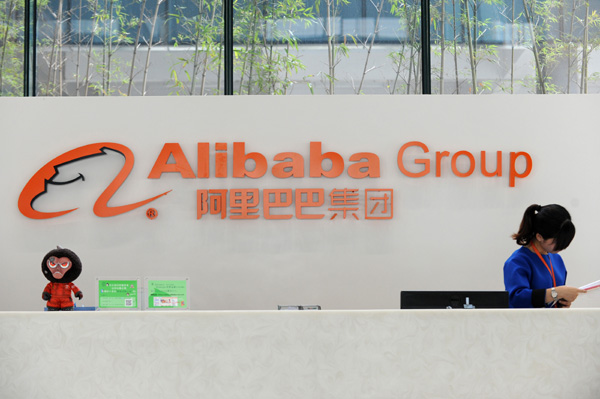 |
|
A receptionist works at Alibaba's headquarters in Hangzhou, capital of East China's Zhejiang province, in this Jan 30, 2015. Alibaba founder Jack Ma has spoken of his driving ambition to create "a global company" when he first started the company, something he eventually did. [Photo/Xinhua] |
In the past few years, many Asian companies have entered the global stage and challenged the dominance of Western companies. Despite economic growth slowing in Asia, there is much to suggest this trend will continue.
The shift in the balance of corporate power from West to East is evident from the Forbes Global 2000 list, ranking the world's largest publicly listed companies. Last year, Asia edged out in front of North America for the first time, with 674 companies to 629.
Unsurprisingly, China had more new entrants on the list in 2014 than any other country. A famous example of a Chinese company propelled to corporate superstardom is Alibaba Group Holding Ltd, which shot from a modest 18-man startup to become China's dominant e-commerce business in just 15 years.
India's Tata Group has a considerably longer history, but it is another great example of an Asian company that has made its global presence felt. It now employs more than 500,000 people in 100 markets worldwide.
Those wondering where the next Tata or Alibaba is going to come from might be encouraged by a recent survey we commissioned. The results point to a thriving pipeline of future Asian business winners.
We asked 300 chief executive officers and chief financial officers of medium-sized companies (defined as having annual sales of $30 million to $100) in China, India, Malaysia and Indonesia about their business plans and growth ambitions.
Their confidence in the future was astonishing.
Nine out of 10 expected sales to grow in the next five years (by an average of 39 percent) and three out of four expected to add staff.
Much of the confidence is based on growing domestic demand, buoyed by a fast-growing middle class. By 2030, Asia is expected to account for two-thirds of the global middle-class population, up from less than one-third five years ago.
However, not content with domestic success, most of the companies we surveyed are already trading internationally, riding the wave of increased regional and global trade. More than two-thirds have ambitions to ramp up global overseas sales, both within the Asia region and further afield. Europe was cited as a preferred trading partner by more than half of the Indian and Chinese companies.
